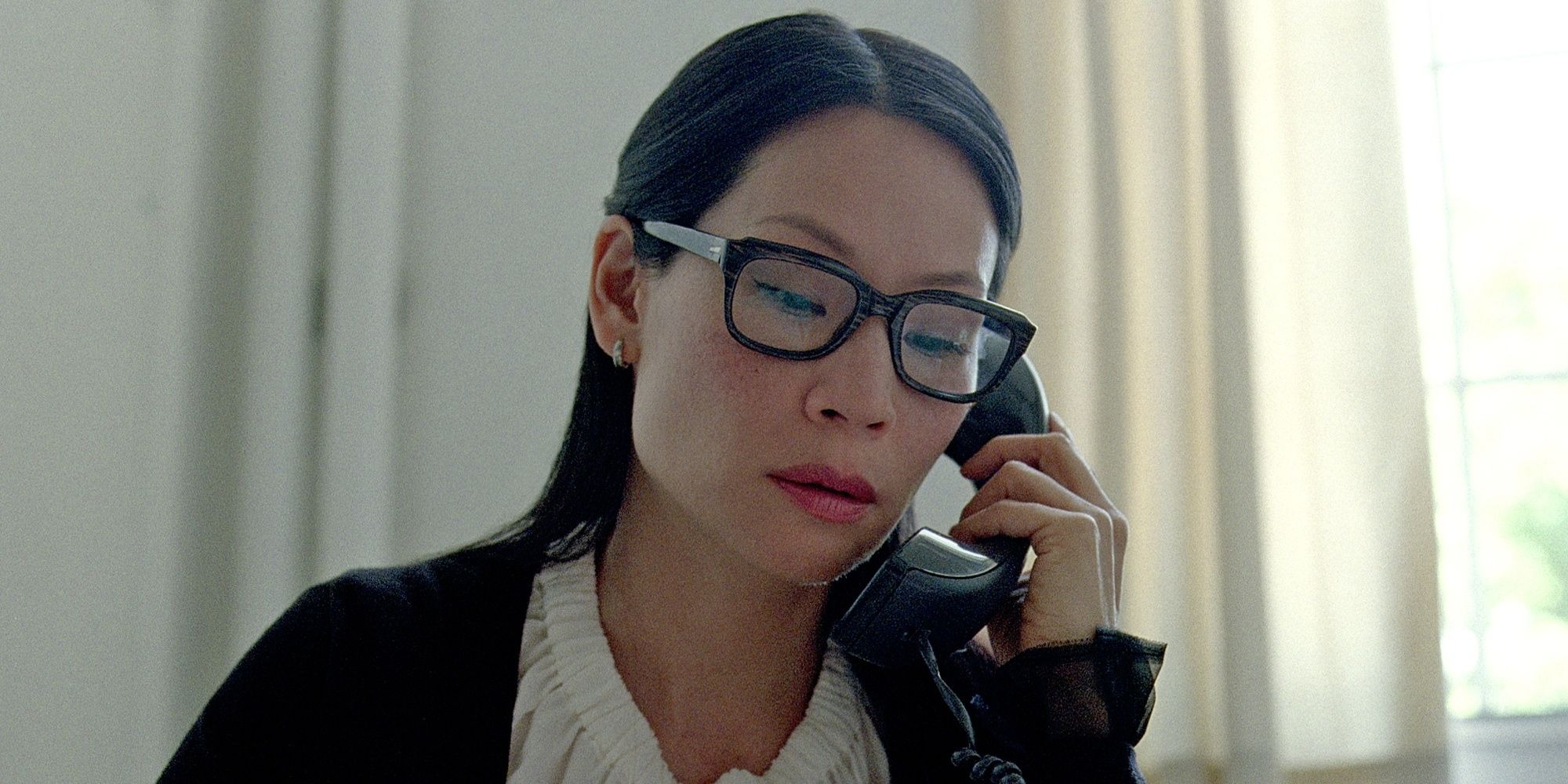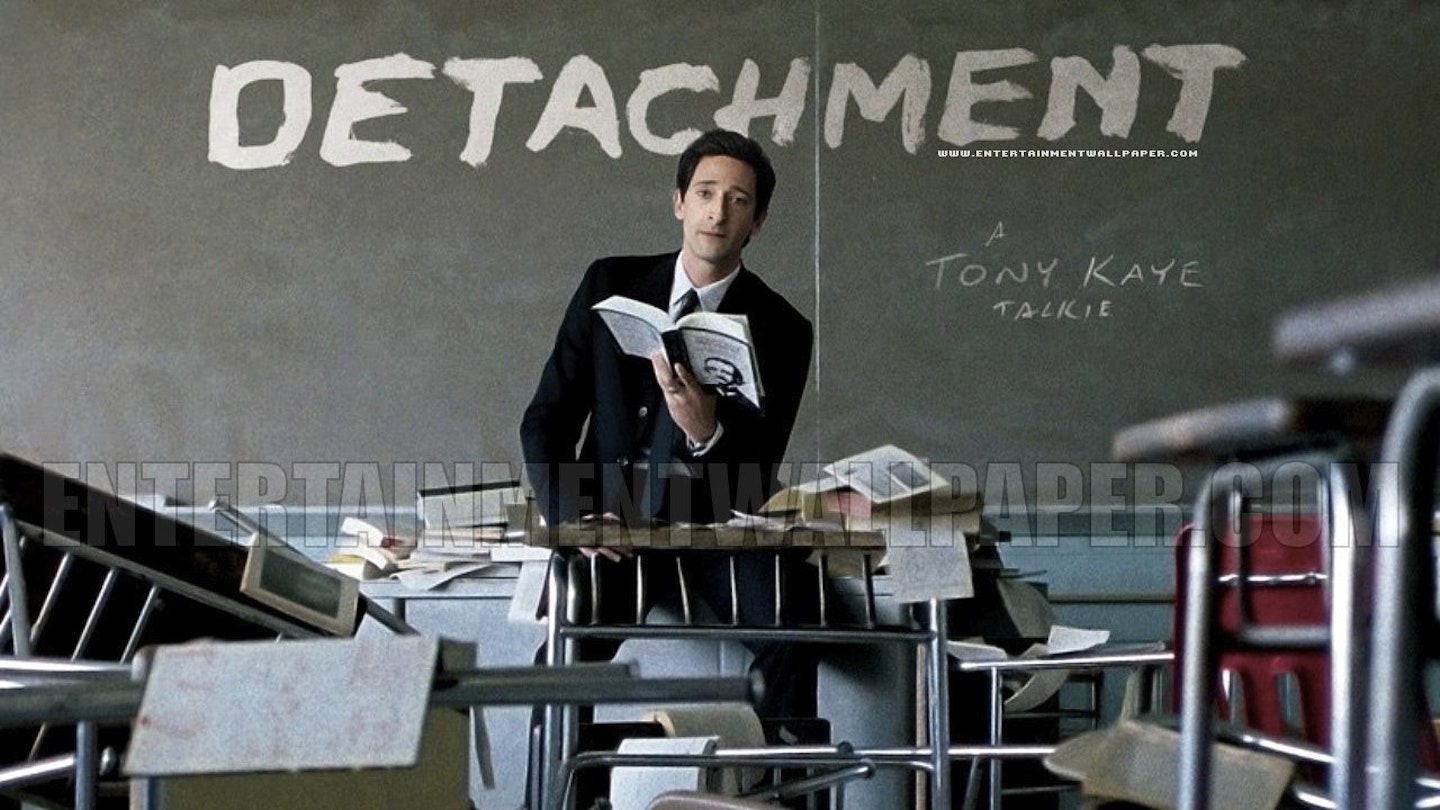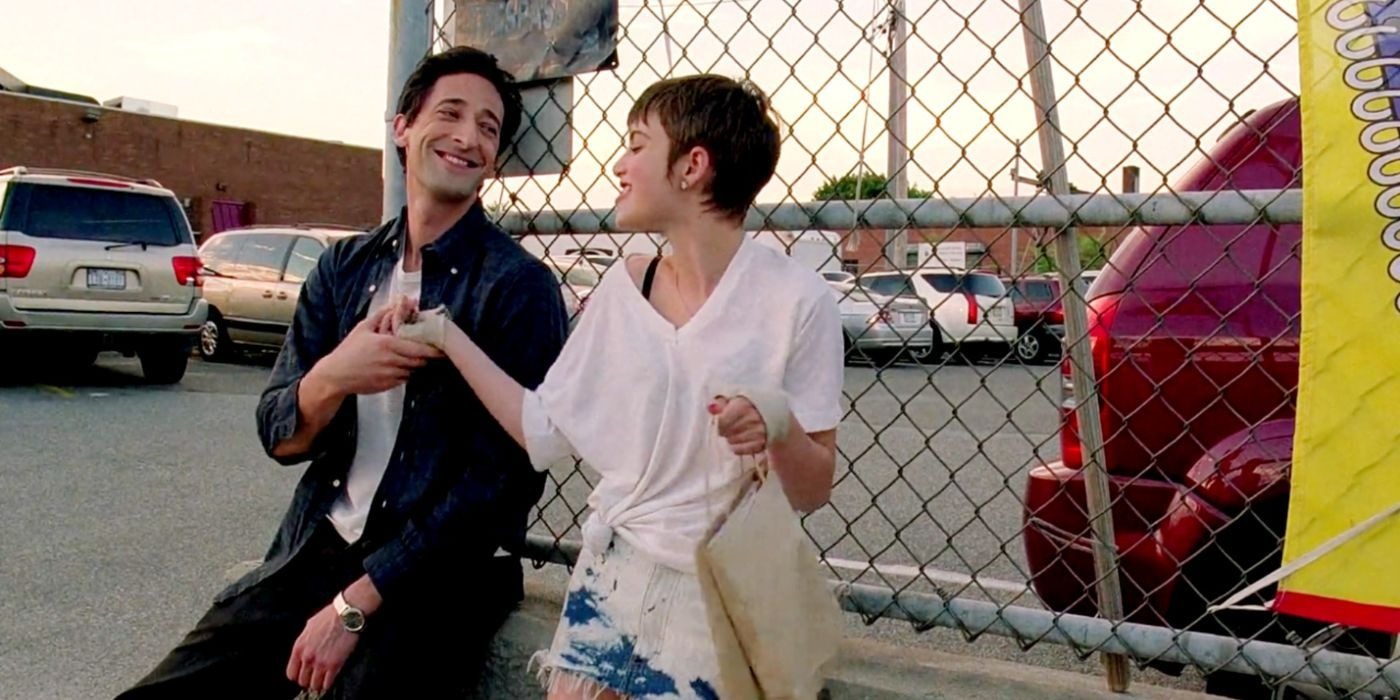Tony Kaye’s drama Detachment delves into human emotions, relationships, and personal struggles, leaving audiences with a thought-provoking conclusion. The film follows Henry Barthes (Adrien Brody), a substitute English teacher who takes on a temporary assignment at a high school near his residence.
Henry leads a solitary life, burdened by the responsibility of his ailing grandfather and struggling to form meaningful connections. Brody, known for his emotionally intense performances, delivers a haunting portrayal of Henry, capturing his deep sorrow and emotional turmoil.
An ensemble cast supports the film’s emotionally charged story, featuring famous actors such as Lucy Liu, Marcia Gay Harden, Christina Hendricks, Tim Blake Nelson, James Caan, and Bryan Cranston during his rise to prominence with Breaking Bad.

Each character Henry encounters—whether fellow teachers, students, or family members—leaves a mark on his journey, shaping his understanding of relationships. The film raises more questions than it answers, yet by closely examining its conclusion, one can grasp the underlying message that ties Henry’s experiences together.
Henry’s Troubled Past Shapes His Choices
Henry’s responsibilities extend beyond the classroom, as he frequently visits his grandfather (Louis Zorich), who is confined to a care facility due to dementia. His interactions with the elderly man are fraught with inner conflict, as Henry harbors suspicions that his grandfather had harmed his mother in the past.
His mother’s tragic death by suicide further complicates his emotions, making it difficult for him to process his feelings. Despite his resentment, Henry remains tethered to his grandfather, creating an unsettling bond that reflects both obligation and detachment.
The film touches on distressing themes such as abuse, mental health struggles, and fractured relationships, showing how Henry’s past influences his present. His reluctance to get close to others stems from these experiences, leaving him emotionally withdrawn.
When a student named Meredith (Betty Kaye) turns to him for comfort, Henry hesitates, fearing that his actions might mirror the disturbing dynamics he despises in his own family history.
Dr. Parker’s Internal Struggles Manifest In Unexpected Ways
Henry is not the only one in Detachment grappling with unspoken pain. Dr. Doris Parker (Lucy Liu), the school counselor, also finds herself burdened by unfulfilled aspirations.
During a conversation with a student named Missy (Renée Felice Smith), Dr. Parker’s professional facade cracks, revealing her own frustrations. Initially discussing Missy’s declining academic performance, she soon projects her personal disappointments onto the student, turning the discussion into an emotionally charged rant.
Missy, bewildered by the sudden switch, struggles to grasp the true nature of the conversation. The theme of missed opportunities and dissatisfaction runs throughout the film, with multiple characters battling unresolved emotions.
Like Henry, Dr. Parker is unable to find meaningful connections, highlighting the widespread emotional dissonance among the film’s characters.
Meredith’s Fate Was Beyond Henry’s Control
Among the few genuine relationships Henry develops is his bond with Meredith, a student struggling with deep emotional distress. As he observes her behavior, Henry begins to suspect that she harbors suicidal thoughts—something he recognizes due to his mother’s tragic past.
Despite noticing the warning signs, he refrains from intervening until she directly confides in him. Their brief moment of honesty is short-lived, as Henry abruptly distances himself, fearing that he may be overstepping boundaries.
Meredith’s subsequent death by suicide leaves Henry with a lingering sense of guilt, yet the film suggests that he was not responsible for her fate. His initial hesitation was not a failure, as he later attempts to reach out to her, only to find that his words are unable to change her decision. His struggle to form attachments does not mean he did not try—his efforts, though imperfect, were still meaningful.
Sarah’s Unhealthy View Of Henry Creates Conflict
Sarah Madison (Christina Hendricks), another teacher at the school, exhibits her own struggles with emotional connections. She develops feelings for Henry but cannot express them clearly. Henry, on the other hand, remains emotionally unavailable, making any potential relationship difficult.
Sarah misinterprets Henry’s concern for Meredith, leading to an outburst where she accuses him of inappropriate behavior. Her reaction speaks to her inability to distinguish between genuine care and unhealthy attachment.
The miscommunication between Henry and Sarah further emphasizes the film’s recurring theme—people often struggle to understand or express their emotions, leading to unnecessary conflict and isolation.
The Symbolism Behind The Fall Of The House Of Usher
Towards the end of the film, Henry reads The Fall of the House of Usher by Edgar Allan Poe to his students. This literary reference serves as a powerful parallel to his own circumstances. Poe’s story goes through themes of isolation, psychological turmoil, and decay—elements that closely mirror Henry’s experiences throughout the movie.

By this point, Henry has lost his grandfather, distanced himself from Sarah, and mourned the death of Meredith. The world around him seems to be crumbling, much like the doomed Usher family in Poe’s tale. However, the film does not conclude on a completely hopeless note.
The final moments feature Billie Holiday’s Strange Fruit, a song known for its haunting commentary on racial violence. While its literal meaning may not directly align with Detachment’s themes, its sorrowful tone reinforces the film’s emotionally heavy conclusion. The combination of the song and the desolate imagery of an abandoned school underscores the film’s entire sense of despair.
The True Meaning Behind Detachment’s Ending
The film’s final sequence, showing Henry walking through an empty school, carries an air of ambiguity. Whether this is meant to be a literal event, a symbolic moment, or a vision of what is to come remains uncertain.
What is clear, however, is that Henry’s journey has led him to an emotional state akin to the abandoned school—lonely, deteriorating, and stripped of warmth. His struggle with forming attachments has left him in a fragile state, reinforcing the themes of isolation and emotional detachment.
Yet, despite the darkness, there is a glimmer of something different. When Henry reconnects with Erica (Sami Gayle), a troubled young girl he had once turned away, she welcomes him back with warmth.
Her forgiveness suggests that despite his emotional wounds, Henry is not beyond redemption. While the ending does not offer a perfect resolution, it implies that his story is still revealing, and there remains a possibility for healing and connection.



